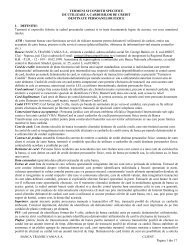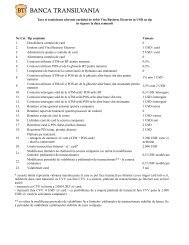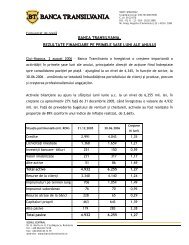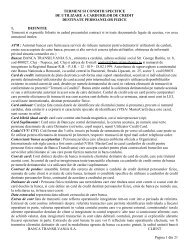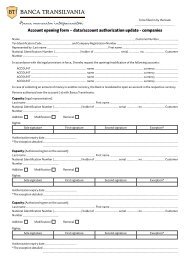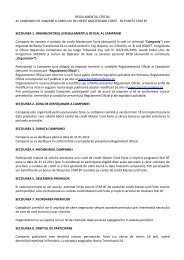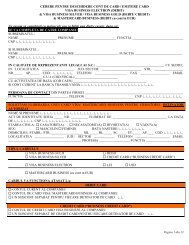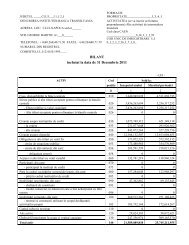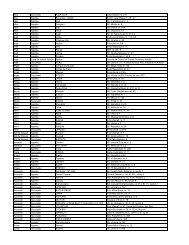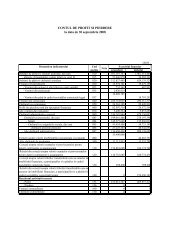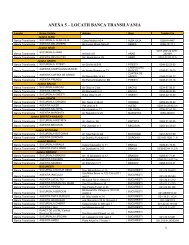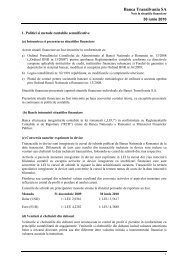BANCA TRANSILVANIA S.A. Romanian joint-stock company ...
BANCA TRANSILVANIA S.A. Romanian joint-stock company ...
BANCA TRANSILVANIA S.A. Romanian joint-stock company ...
- No tags were found...
Create successful ePaper yourself
Turn your PDF publications into a flip-book with our unique Google optimized e-Paper software.
payments accrued and unpaid have been paid in full or the Bonds are converted into Shares inaccordance with their terms and all payments accrued and unpaid have been paid in full.Interest will be calculated on the basis of the actual number of days elapsed in an InterestPeriod and a year of 360 days2.8. Status, SubordinationThe Bonds are direct, unconditional, general and unsecured obligations of the Bank rankingpari passu among themselves and without any preference, but the Bonds shall be subordinatedand junior in right of payment to the non-subordinated claims of all other creditors, but shallrank pari passu with any subordinated debts of the Issuer; provided that, such subordinationprovisions shall not prevent any holder of the Bonds from exercising the conversion rightsunder the Bonds set forth in Section 5. Conversion in Section 2. Information regardingsecurities that are to be offered, II. Bonds Terms and Conditions below, and no deemedpayment of any Bond arising out of any exercise of conversion rights shall be prohibited bysuch subordination provisions.In the event of bankruptcy or liquidation of the Bank, all amounts due under the Bonds shall besubordinated to the prior payment and satisfaction in full of all unsubordinated indebtedness ofthe Bank admitted in such procedure. The subordination provisions shall be pursuant to therequirements set forth by the NBR to qualify the Bonds as supplementary Tier II Capital of theBank (own funds of the Bank), i.e. compliant with the Regulation 18/2006.These Bonds are capital in the form of subordinated loan, in compliance with the terms andconditions below:1. the binding commitments herein ensure that, in the event of the bankruptcy orliquidation of the Issuer, they rank after the non-subordinated claims of all othercreditors and are not to be repaid until all other unsubordinated debts outstanding at thattime have been settled. In this respect, the contractual provisions meet the generalrequirements on subordinated debt, i.e.:• subordination is effective;• the Prospectus does not contain any clauses which may lead to the early repayment ofthe Bonds or to the increase of the initial costs of the Bonds. This does not howeverprejudice the Bondholder’s right to petition for the winding-up of the Issuer, in theevent of the culpable failure of the contractual obligations. The only situations thatrepresent culpable events of default of the Issuer (Events of Default) are: failure topay the due amounts according to the Prospectus (the interest pursuant to theProspectus and the principal upon maturity) and the Issuer’s bankruptcy, respectively.In these situations, the Bondholder does not have any way to realize his claim otherthan the possibility to request the winding up of the debtor or finally, to enforce hisrights by a liquidation procedure of the latter; additional claims for damages arepossible only within these procedures for the realization of the claims and such claimsshall be collected together with the main claim, after all other unsubordinated claims.101




